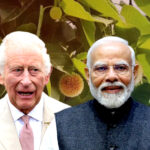Bollywood may be known for star power, but even the most prominent names can be shown the door. In the recent past, Deepika Padukone has been dropped from not one but two massive projects- the sequel to Kalki 2898 AD and Sandeep Reddy Vanga’s Spirit opposite Prabhas.
The production houses didn’t spell it out directly. Still, their carefully worded statements, citing an “inability to form a partnership” and vague concerns about “commitment”, left little doubt that the decision wasn’t hers. For Deepika, the optics are uncomfortable: being publicly removed from two of the industry’s most anticipated films is not a “creative choice,” it’s a professional setback.
And it isn’t the first time her career has run into turbulence. From flop streaks to headline-making controversies, Deepika’s stardom often looks less like smooth sailing and more like a series of storms.
The ‘Spirit’ controversy
The slide began in June 2025, when Sandeep Reddy Vanga dropped Deepika from his Prabhas-starrer movie Spirit. Industry chatter blamed her steep demands — a ₹20 crore fee, profit share, capped shooting hours, and even reluctance to speak Telugu. Vanga’s camp called her inflexible; her team whispered about “script issues.”
By September 2025, history repeated. Nag Ashwin’s Kalki 2898 AD sequel also cut her out. Reports spoke of “impossible demands” — six-to-eight-hour days, five-star lodging for a 25-member entourage, and a hefty fee hike. Deepika’s side countered that her central role had been slashed to a cameo.
The statements were polite, “unable to form a partnership,” “requires commitment,” but the message was blunt: two of India’s top directors decided that no matter the name, etiquette is what matters.
The work etiquette debate
At the heart of both exits lies a clash over work culture. Deepika reportedly pushed for shorter, regulated shifts, higher pay, profit sharing, and watertight contracts. Her camp framed it as work-life balance, especially after motherhood.
But Bollywood isn’t built on fixed hours. Shoots often stretch unpredictably, and producers argue rigid rules are unworkable on big-budget films. A few actors, like Saif Ali Khan and Ajay Devgn, have admitted that humane schedules are overdue, but directors see Deepika’s terms as overreach — star leverage turning into entitlement.
Plus, why does the producer have to pay for your 25-person team?
What might sound like a demand for professionalism to her team looks, to the industry, like a refusal to adapt to filmmaking’s chaos.
A career of ups and downs
This turbulence is hardly new. Between 2010 and 2012, Deepika went through one of Bollywood’s roughest slumps, with seven flops out of nine films. Titles like Karthik Calling Karthik, Break Ke Baad, and Khelein Hum Jee Jaan Sey failed miserably, raising doubts about her staying power.
Even in later years, inconsistency followed. Finding Fanny, Tamasha, Chhapaak, and 83 all underperformed — with 83 collapsing under the weight of its massive budget despite strong reviews. For someone long branded “bankable,” the box office record is far shakier than the image.
Her project troubles aren’t new either. She was once in the running for Sanjay Leela Bhansali’s Baiju Bawra but was eventually replaced, reportedly over fee disagreements. Similarly, Dhoom 4 buzz faded after negotiations stalled, and her much-hyped Hollywood push after XXX fizzled out without follow-ups.
Overlaying this are her controversies — from the plagiarism row over a Levi’s ad to FIRs in brand endorsement cases, and even the backlash after her JNU campus appearance during Chhapaak. Each episode has chipped away at her credibility, reinforcing the perception of a star weighed down by noise.
Conclusion: Not about feminism
Deepika’s defenders are trying to spin her troubles as a “feminist struggle”, a woman daring to set boundaries in a male-dominated industry. But the record tells a harsher story. She wasn’t dropped from Spirit and Kalki 2898 AD because of her gender; she was dropped because producers found her terms unreasonable and her presence more trouble than value. This conclusion clearly indicates that her career slumps are linked to her endless controversies, which aren’t about glass ceilings. They are about work etiquette, judgment, and the consequences of overplaying stardom.
In Bollywood, bankability is everything. When you’re associated with flops, controversies, and clashes with directors, the industry eventually chooses the easier option: to move on without you. Deepika Padukone may still be a global face, but if she keeps piling controversy over credibility, her legacy won’t be of a trailblazer; it’ll be of a star who mistook noise for power.









